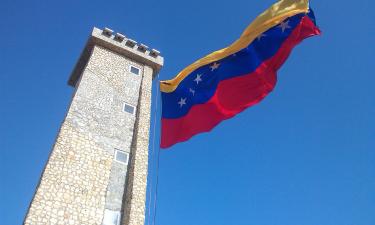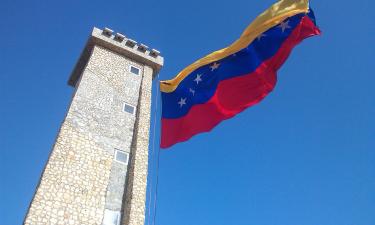WEF vs. WSF
The titles of these two conferences can be confirmed by the topics spoken about in the first day. At the World Social Forum in Porto Alegre, Brazil, the main preoccupation was peace in the world, not just in the Gulf and the negative effects of globalisation, while at the World Economic Forum in Davos, Switzerland, the mood was more sombre, with the threat of war in Iraq and the effects of this on petroleum prices darkening the horizon.
The march for peace in Porto Alegre, with its multi-coloured banners, to the beat of samba, was a happy occasion, a message of friendship, of peace between the world’s peoples as governments strive together in a spirit of collaboration to find solutions to their problems. It was a message against the alter mundialistas (the “alternative world view”) of violence and war and the perpetuation of poverty.
There seems to be a general consensus among the leftist leaders in the world that the fight against globalisation is personified or championed by the figure of Lula, the new Brazilian president. Mário Soares, the ex-President of Portugal, declared in an interview quoted by the Estado de São Paulo that President Lula “represents the end of political cynicism” and proves that if people believe in their ideals, they can win.
Anibal Ibarra, the Mayor of Buenos Aires, agreed that president Lula personifies the hope for “a new world, just, socialist and fraternal”.
Meanwhile, in Davos, the mood was far more sombre. The World Economic Forum was beset by a climate of pessimism over the possible outbreak of war in the Gulf and the negative effect this will have on world oil prices. The general consensus was summed up by the founder of the World Economic Forum, Klaus Schwab, who declared that “The Forum was the victim of the excessive euphoria after the fall of the Berlin Wall”, referring that the strident optimism of the time made the strategic planners overlook underlying economic problems.
The result at the WEF is a bleak economic outlook, based on the economists’ number one enemy: uncertainty for the future. The world economy is sick; the USA, the motor of the world economy, is sick (the corporate scandals of last year are witness to this), Europe cannot react and Japan is still steeped in recession.
Gareth Evans, Director of the Crisis International group, took advantage of the WEF to attack the Bush administration, which he accused of missing the opportunity to solve the Palestinian problem, the Korean question and the Iraqi question. Instead, all three conflicts are more heated than ever, with the prospect of armed conflict a distinct reality, with all the nefarious consequences this brings against the creation of a climate of economic stability.
Timothy BANCROFT-HINCHEY PRAVDA.Ru
Subscribe to Pravda.Ru Telegram channel, Facebook, RSS!


